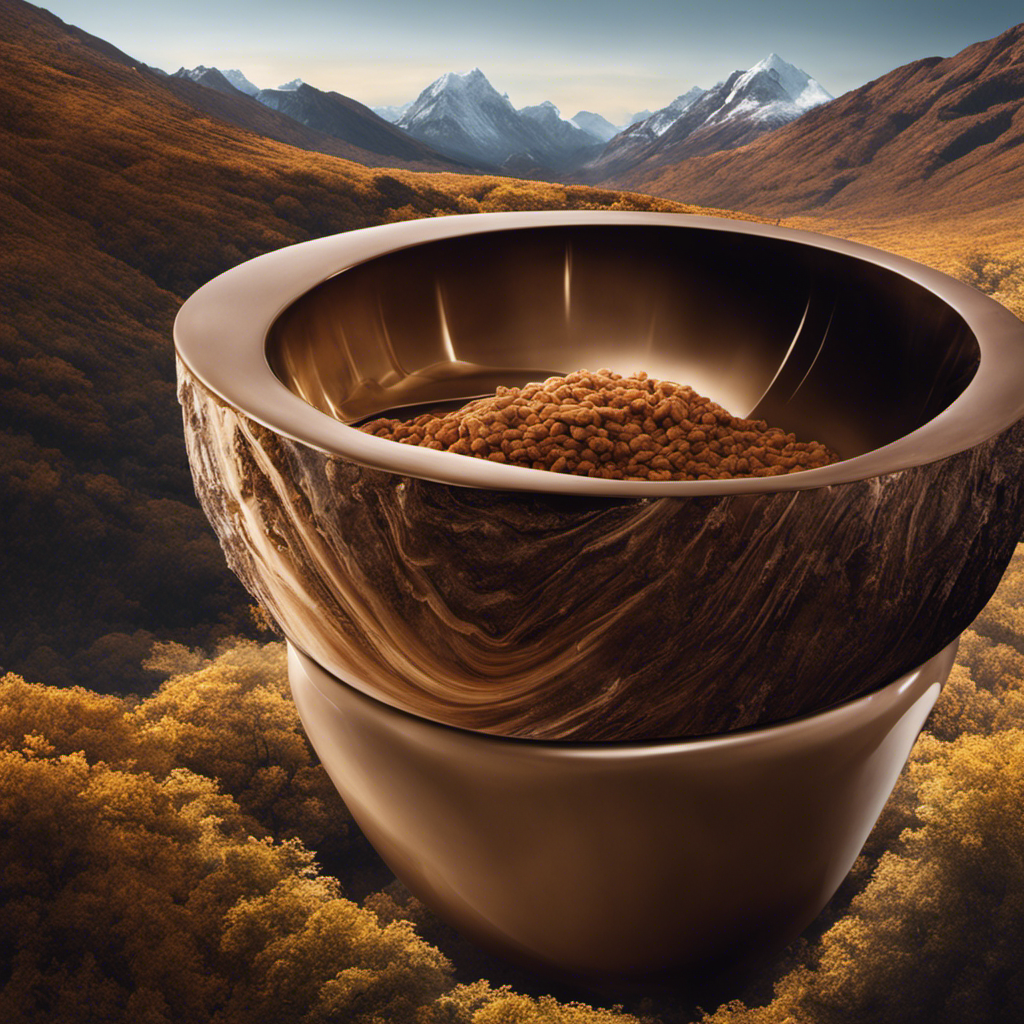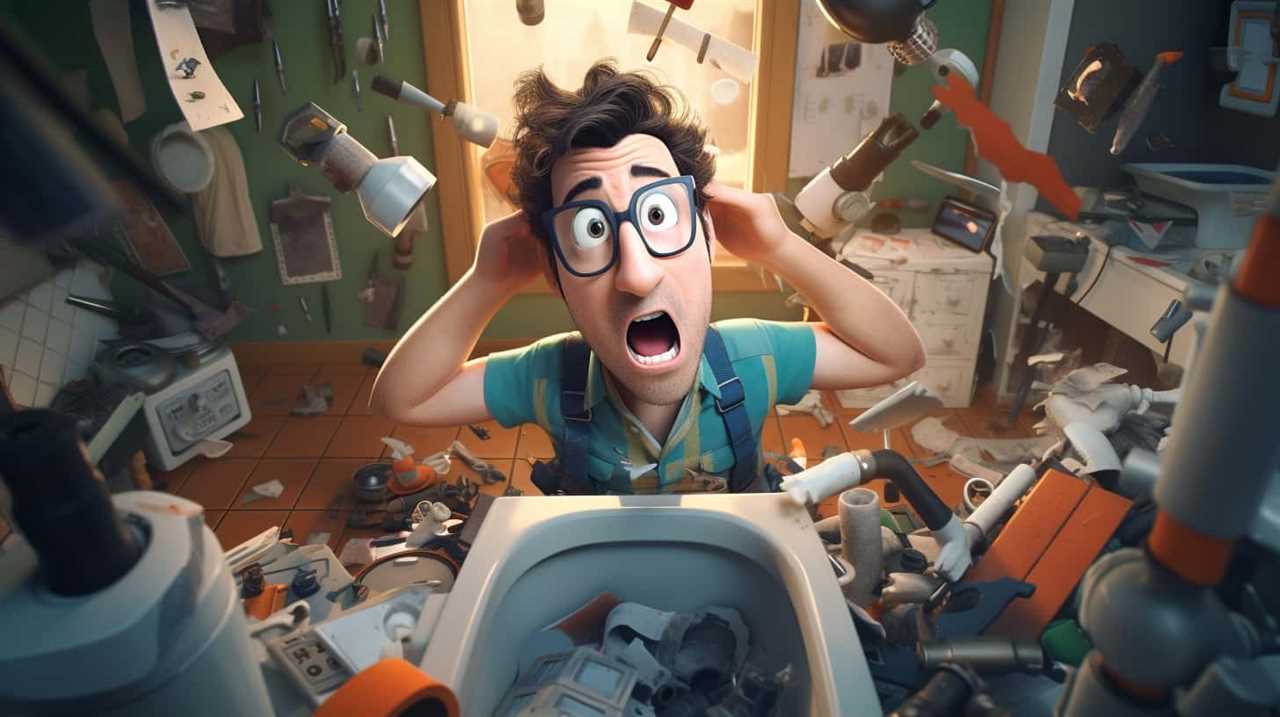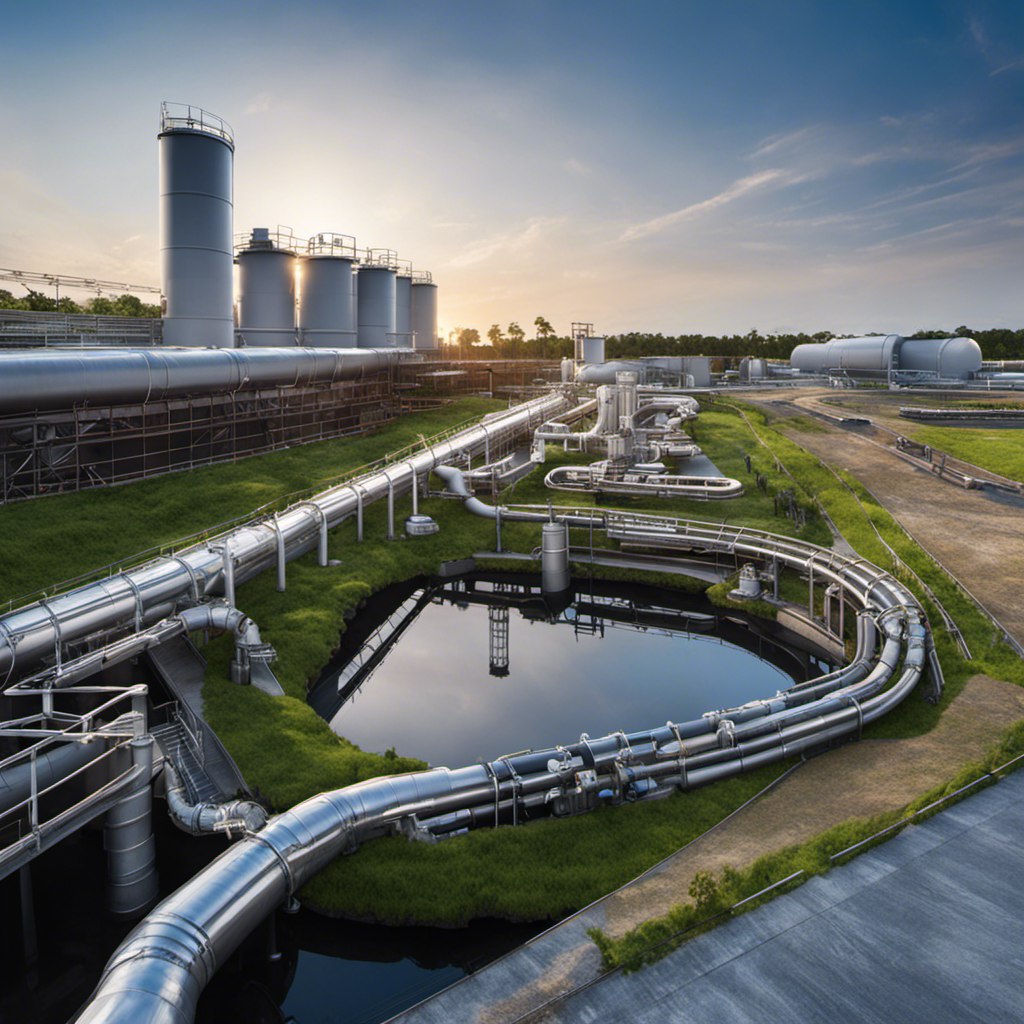Have you ever wondered why your poop is so big that it clogs the toilet? It can be quite a frustrating and embarrassing experience.
In this article, I will delve into the anatomy of large poops and explore the factors that contribute to oversized stool. We’ll also discuss the impact of diet and certain medical conditions on toilet clogging.
Finally, I’ll provide you with some helpful tips to prevent those dreaded toilet clogs caused by big bowel movements. So, let’s dive in and uncover the reasons behind this common bathroom dilemma.
Key Takeaways
- Adequate hydration is important in preventing toilet clogs caused by large bowel movements.
- Insufficient hydration can lead to harder and larger stools, increasing the risk of blockages.
- Consuming a diet high in fiber can promote healthy digestion and prevent oversized stools.
- Medical conditions such as fecal impaction can cause big poops and toilet clogs, and may require treatment.
The Anatomy of Large Poops
Large poops can be the result of several factors, including diet and hydration levels. When it comes to the implications of large poops on plumbing systems, it is important to understand the role of hydration in the size of bowel movements.
Adequate hydration plays a crucial role in maintaining proper digestive function. When the body is well-hydrated, it helps soften the stool, making it easier to pass through the intestines and ultimately preventing clogs in plumbing systems. On the other hand, insufficient hydration can lead to harder and larger stools, which are more likely to cause blockages in pipes and toilets.
Therefore, ensuring proper hydration by drinking enough water throughout the day can help regulate the size and consistency of bowel movements, reducing the risk of plumbing issues.
Factors That Contribute to Oversized Stool
To prevent oversize stool, consider factors such as your diet and hydration levels. Stool consistency plays a crucial role in toilet clogs. When stool is too large and hard, it can be difficult to flush down the toilet, leading to clogs.
One way to ensure proper stool consistency is to maintain adequate hydration levels. When you are dehydrated, your body absorbs more water from the stool, making it harder and larger. By drinking enough fluids throughout the day, you can help soften the stool and prevent it from becoming oversized.
However, hydration is just one piece of the puzzle. Diet also plays a significant role in toilet clogging, which we will explore in the next section.
Diet and Its Impact on Toilet Clogging
Maintaining a balanced diet can greatly influence the likelihood of experiencing toilet clogs. As a person who has studied the effects of diet on bowel movements, I can tell you that two important factors to consider are fiber intake and hydration levels.
Let me break it down for you:
-
Fiber Intake: Consuming an adequate amount of fiber is crucial for promoting healthy digestion. Fiber adds bulk to your stool, making it easier to pass through the intestines. This helps prevent the formation of large, hard stools that can lead to toilet clogs.
-
Hydration Levels: Staying hydrated is essential for maintaining regular bowel movements. When you are dehydrated, your body tries to compensate by absorbing more water from the colon, resulting in dry and hard stools. These can be difficult to flush down the toilet, leading to clogs.
-
The Balance: Striking a balance between fiber intake and hydration levels is key. Too much fiber without enough water can actually worsen constipation, while excessive hydration without enough fiber can lead to loose stools. Finding the right balance can help prevent toilet clogs and promote overall digestive health.
Medical Conditions That Cause Big Poops
If you’re experiencing consistently difficult bowel movements, it’s important to consider potential medical conditions that may be causing this.
One possible cause of big poops is a condition called fecal impaction, where a large mass of dry, hard stool gets stuck in the rectum. This can result in difficult and painful bowel movements.
Treatment options for managing excessive stool size include increasing fiber intake, staying hydrated, and using stool softeners or laxatives under medical supervision.
It’s important to differentiate between normal and abnormal bowel movements. Normal bowel movements should be soft, formed, and easy to pass. Abnormal bowel movements may be large, hard, and difficult to flush, indicating a potential underlying medical condition.
Understanding the causes and treatment options for excessive stool size can help prevent toilet clogs and improve overall bowel health.
Tips for Preventing Toilet Clogs Due to Large Bowel Movements
Make sure you increase your fiber intake, stay hydrated, and consider using stool softeners or laxatives under medical supervision to prevent potential toilet clogs caused by large bowel movements.
Here are three tips to help you prevent toilet clogs and maintain a healthy digestive system:
-
Proper bathroom posture: Sitting on a toilet seat in a squatting position, with your knees raised higher than your hips, can help straighten the rectum, making it easier to pass stools. Consider using a stool or a squatty potty to achieve this position.
-
Increase water intake: Staying hydrated is crucial for maintaining healthy bowel movements. Drinking enough water helps soften the stool and promotes regularity, reducing the risk of toilet clogs.
-
Using a plunger effectively: If you do experience a toilet clog, using a plunger can be an effective solution. Make sure to position the plunger over the drain, create a tight seal, and push and pull with forceful strokes to dislodge the clog. Remember to be cautious and avoid using excessive force to prevent any damage to the plumbing system.
Frequently Asked Questions
What Is the Average Size of a Normal Bowel Movement?
On average, a normal bowel movement can vary in size, but it is typically around 4 to 8 inches long. However, large poops can have health implications, such as causing constipation or even bowel obstruction.
Can Constipation Cause Large Poops That Clog the Toilet?
Constipation, medication, and medical conditions can all contribute to large poops that clog the toilet. It’s important to stay hydrated, eat a balanced diet, and talk to a healthcare professional for guidance.
Are There Any Natural Remedies to Soften Stool and Prevent Toilet Clogs?
There are several natural remedies that can help soften stool and prevent toilet clogs. These remedies include increasing fiber intake, staying hydrated, exercising regularly, and using stool softeners if necessary.
How Does Dehydration Affect the Size of Bowel Movements?
Dehydration can cause larger stool size as it reduces water content in the body. This can lead to harder, drier stools that are more difficult to pass, potentially resulting in toilet clogs.
Can Stress or Anxiety Contribute to the Formation of Large Poops That Clog the Toilet?
Yes, stress and anxiety can contribute to stress-related constipation, which can result in larger stools that may clog the toilet. Additionally, dietary factors such as inadequate fiber intake can also affect stool size.
Conclusion
In conclusion, understanding why your poop may be so big that it clogs the toilet is crucial for maintaining a healthy digestive system.
By considering factors such as diet, hydration, and underlying medical conditions, you can take steps to prevent these uncomfortable situations.
Just like a river flowing through a narrow gorge, your digestive system needs to find the right balance to ensure smooth passage.
So, be mindful of what you eat and stay well-hydrated to keep your bowel movements flowing effortlessly, like a gentle stream.










